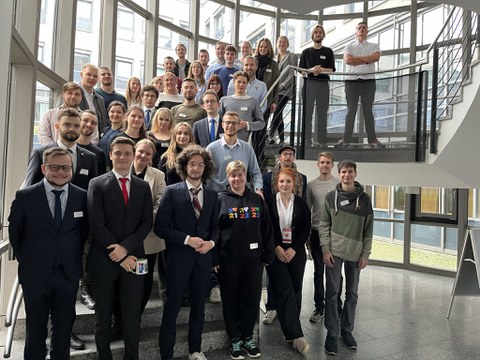Dec 01, 2023
Simulation game: Council of the European Union "Foreign Affairs"
The simulation game provided an experience of intensive negotiations, informal discussions, and collaborative decision-making. The event, held on November 4 and 5 as part of a seminar on the Common Foreign and Security Policy of the European Union, saw students taking on the roles of the 27 foreign ministers of member states and the EU High Representative for Foreign Affairs and Security Policy, Joseph Borell. Two press teams, representing tabloid and quality press, also participated, influencing negotiations through their reporting. The simulation focused on three key topics: Ukraine, migration, and Serbia's accession to the EU, with students also embodying the roles of the Ukrainian and Serbian foreign ministers.
Under the guidance of Stefanie Gerstenberger, the participants prepared for their roles using diverse sources, including newspaper articles, election programs, information from foreign offices, European Union documents, and previous conclusions and reports from the Foreign Affairs Council of the European Union.
The first day started with clarifying the agenda and rules, followed by the official opening of the meeting by the High Representative. Invited guests addressed individual topics, after which foreign ministers presented their positions, facilitating the identification of potential collaborators. Working groups were then formed for each topic to establish common positions and strategies, allowing for informal discussions and secret agreements. Press teams conducted interviews during the working group phase. Subsequently, a discussion round took place, with each group appointing a spokesperson to avoid confusion. Once a consensus was reached among the 27 representatives, voting occurred, leading to either a joint statement or an official resolution, depending on the topic. The simulation concluded with a joint press conference on Sunday evening.
The seminar aimed to provide a realistic and experience-based understanding of the Foreign Affairs Council's functional logic while enhancing oral and written presentation skills. Participants were encouraged to empathize with conflicting parties, understand their logics of action, and gain practical experience in navigating the dynamics of a complex system.

